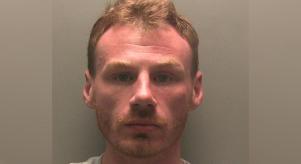
3 famous cases of false confessions
False confessions are one of the most troubling aspects of the criminal justice system. There are plenty of examples of people who have admitted to crimes that they didn’t commit, and there are all sorts of reasons why this can happen. Whether it’s due to coercion by law enforcement, psychological problems, or intense pressure because of the situation, false confessions can occur no matter what the crime might be.
This article examines three particularly well-known examples of false confessions from throughout crime history. These confessions are infamous for their shocking nature, as well as how the confessions came to be.
1. Sture Bergwall
One of the most well-known false confession cases comes from Swedish man Sture Bergwall, also known by the name Thomas Quick. Bergwall was thought to be a notorious serial killer due to the various confessions he gave while he was confined to a mental institution.
Bergwall had many personal issues and was far from innocent, with a history of criminal behaviour that ranged from drug abuse to molestation. He was taken to a psychiatric facility after an armed robbery committed in 1991.
While taking strong medication – including benzodiazepines – Bergwall confessed to various murders from over the years across Sweden, Finland, and Denmark. He did so during therapy sessions within the psychiatric facility. Bergwall gave accounts of the murders, but his stories had inconsistencies and no evidence to back them up.
From his confessions alone, Bergwall was sentenced for eight of the murders and was dubbed a psychopathic serial killer. In 2008, Bergwall recanted every single confession. His convictions were overturned between 2009 and 2013.
Bergwall’s case is thought to be one of the most significant and shocking miscarriages of justice in the history of Scandinavia.
2. The West Memphis Three
The West Memphis Three case involves a false confession obtained via coercion and manipulation.
Damien Echols (18), Jason Baldwin (16), and Jessie Misskelley Jr (17) confessed to the horrific murders of eight-year-old boys Christopher Byers, Steve Branch, and Michael Moore in West Memphis, Arkansas.
The teenagers were somewhat troubled, with a history of petty crime, mental health problems, and anger issues.
Echols had particularly severe mental health issues and was known for an interest in the occult. His reputation led local police officers to detain and interview him, as they felt that the crime had overtones of a cult-like nature.
Despite Echols being the leader of the group, it was Misskelley Jr who made that confession that broke the case. However, Misskelley Jr was not only a minor interviewed without a lawyer or parent, but he also had an IQ of 72. This categorised him as borderline intellectually disabled.
He was pressured and fed details to make him more likely to agree with the narrative of the officers. He also had trouble understanding the legalities surrounding his arrest and interview.
All three were convicted, though Echols was sentenced to death and Baldwin and Miskelley Jr were sentenced to life imprisonment. It wasn’t until 2011 – 18 years after their incarceration – that they were released via Alford plea deals.
Presumptions from officers and the manipulation of an intellectually challenged teenager caused this false confession, and it continues to be an example of the flawed United States justice system.
Robert Hubert
Robert Hubert is one of the earliest examples of a false confession. Hubert confessed to starting the Great Fire of London, a raging blaze that destroyed most of England’s capital city in 1666.
The fire began on Pudding Lane in a bakery, but the panic and distress caused by the event led to the widespread finger-pointing. The public needed someone to blame, and that’s where Hubert came in.
Hubert was a 26-year-old watchmaker from France, and he claimed to have started the fire in Westminster. From the get-go, this was unbelievable, as the fire did not make it to Westminster. Not only that, but Hubert wasn't even in England when the fire began.
When Hubert discovered that the fire started in a bakery, he changed his claim to say he threw a fire grenade through the bakery window. He also claimed to be one of the Pope’s agents and a French spy.
Despite the lack of credibility in his claims, Hubert was treated as a scapegoat and was executed for the crime.
It is unclear as to why Hubert made the outrageous claims that he did, but it is thought that he might have been mentally unstable, unable to understand the severity of his claims or he was simply seeking attention. No matter what the reason, Hubert paid the ultimate price, despite his stories having so many holes that they became nonsensical.








